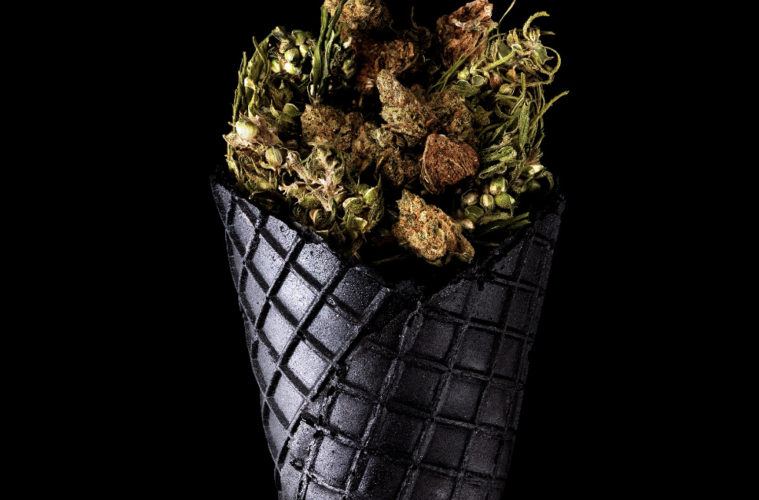Delta 9 THC, the compound most commonly associated with marijuana, is a known psychoactive agent. What this means is that the chemical acts in a way that impacts brain function; the “high” a person feels when they imbibe is a facet of this impact. Some users may experience a feeling of relaxation or mild light-headedness, while others may experience stronger, negative effects like hallucination or profound anxiety. These properties heavily contribute to the psyche behind marijuana being labeled a controlled substance, which it still is on the federal level.
A foreword on Delta 8
Delta 8 THC, meanwhile, has a somewhat different backstory. In December of 2018, the passing of the 2018 farm bill decoupled marijuana and hemp. Previously, both had been labeled as varieties of cannabis, which was and still is a controlled substance. As of the farm bill, hemp is no longer placed into the same category as marijuana, and is now legal for growth and consumption throughout the United States. In this vein, it is now managed and overseen at the federal level by the Food and Drug Administration (FDA), while the Drug Enforcement Administration maintains purview over marijuana.
Delta 8 THC can be extracted from both marijuana and hemp. For the purpose of this article, we will be talking exclusively about hemp-derived Delta 8, which is the only legal form of the drug, and the variety that is most readily available commercially as dabs, flowers, tinctures and other products. Delta 8 is synthesized from CBD that has been extracted from hemp plants. It is also a mild psychoactive agent, though not generally as potent as Delta 9.
Is Delta 8 THC addictive?
The short answer is, yes. As with all substances that affect body and brain function, regular Delta 8 use can lead to a user becoming dependent upon the substance, and attempting to curb its use subsequently may lead to withdrawal symptoms. This has mostly to do with two mutually dependent properties of the drug, namely tolerance and promotingcompulsive use.
Tolerance towards a substance is a property that manifests as a result of repeated, sustained use. If a user partakes in a substance (such as Delta 8 THC or alcohol), their system gradually develops a resistance to the intoxicating effects of the substance. This means that, as time goes on, a user needs to increase the size or the frequency of their doses in order to achieve the same “high”. This eventually gives way to compulsive use, where a user becomes dependent upon a substance to the extent that they can’t function normally without having taken a hit, leading them to take regular hits just to function, instead of for recreational purposes.
How do I tell if I’m addicted?
If you’re worried about the addictive properties of Delta 8, a good way to self-assess your potential risk is to ask yourself the following questions. A “Yes” to any of them might indicate that you have a problem:
- Is using no longer fun?
- Do you ever get high alone?
- Is it difficult to picture a life without Delta 8?
- Does your social life revolve around your use of the drug? Do you pick friends on the basis of Delta 8-friendliness?
- Do you use the substance as a way to deal with problems in your life?
- Do you use Delta 8 as a way to cope with your emotions?
- Has your use of Delta 8 coincided with a tendency to self-isolate?
- Have you ever tried to cut back or quit, but failed in the execution of that goal?
- Since you started using Delta 8, have you noticed a decline in function when it comes to tasks relating to memory, concentration, or motivation?
- Do you feel anxiety when you don’t have immediate access to Delta 8, or the prospect of immediate access in the near future?
- Do you plan your life around your Delta 8 use?
- Have your friends and relatives ever complained about your drug use impacting your relationships with them?
If the answer to any of those questions is yes, then you may be suffering from addiction to some degree. However, you shouldn’t be dismayed as the road ahead is still as open as it’ll ever be. You should contact an addiction counselor or a similar professional in your vicinity to get a better handle on the issues you’re facing, as addiction manifests very differently for different people.
In conclusion
Delta 8 is mildly addictive, though less so than Delta 9, and sustained use can lead a person to develop dependence upon the substance. Over the counter products like concentrates can quickly build up your tolerance and accelerate this process; one should treat them with the caution that they are due. Addiction to Delta 8 can be easily avoided by being mindful of how often you use and how much you’re using. Unless recommended by a physician or other medical professional, regular use should be avoided at all costs. Even if you do find yourself dangerously close to addiction, Delta 8 does not have any known lasting effects on the body or mind, so you can always reverse the adverse effects you’re experiencing. Always smoke or vape responsibly!
Advertising disclosure: We may receive compensation for some of the links in our stories. Thank you for supporting LA Weekly and our advertisers.


